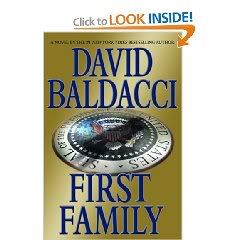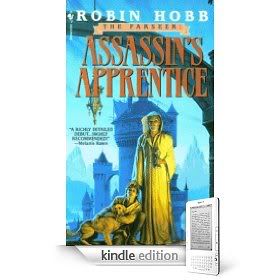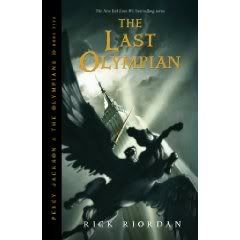
The niece of the First Lady is kidnapped, and the little girl's mother is killed during the crime. At the request of the First Lady, PIs Sean King and Michelle Maxwell take on the case due to King's prior involvement with the First Family and his and Maxwell's ability to work outside the system. As they dig ever deeper into the case, things aren't what they at first seemed, and the investigation starts uncovering overtones of malfeasance in high places.
Baldacci returns to his roots, and the themes he explored so successfully in novels such as "Absolute Power". King and Maxwell are compelling, multi-faceted and captivating characters, much more so - in my opinion - than the overly cutesy Camel Club.
Further, the "bad guy" in this piece is also a fully realized human being; chillingly but understandably portrayed.
The actual key plot point is actually pretty easy to figure out from about halfway through the book; one of the reasons I didn't give it the fifth star. Further, I simply don't think Baldacci has yet managed to recapture the full depth and scope of his earliest works that brought him to prominence.
But for a light and escapist book to take to the beach or pool, this would be a good choice.
Showing posts with label fantasy. Show all posts
Showing posts with label fantasy. Show all posts
First Family
Labels: amazon, buy, fantasy, First Family, great books
Assassin's Apprentice
This review refers to the whole series: Robin Hobb's Farseer trilogy is very different from any other fantasy book you've ever read. The main difference is that it's not action-packed or even action-based. Oh, there's a lot of royal-court plotting and murder, there are battles and journies to distant lands, there is magic and magical creatures and all the other stuff you've learned to expect in a fantasy work - but somehow it's not the main thing, as is evident from the relatively slow-pacing of the plot. So if you're looking for a Robert Jordan kind of action-thriller - you better move on. But if you're an adult (emotionally, that is) and looking for something more substantial and profound - you've found the right book. The Farseer trilogy, as I have already said, is not action-based. Instead, it is charcter-based and relationship-based. it is concerned with the process of a young boy's maturing and becoming a man and an adult (in an environment which is mostly hostile) more than it is concerned with the machinations of a royal court, or the hero's training as a royal assasin. It depicts in great accuracy and detail the relationships between the hero and those around him - various father-figures, the women in his life, his enemies, and the animals he becomes magically attached to. In a sense, it is the most "realistic" fantasy novel i've ever read - not because the world described in the books is realistic, but because the relationships described seem "real": Hobb employs real feelings and gives them psychological depth, her heroes experience real love and real hate, which are often hard' complicated, ambiguous, and have moral aspects that make them even harder. Not the adolescent clear-cut love/hate we've learned to expect from fantasy heroes. Hobbs heroes experience a wide range of emotions, complete with disappointment, disillusionment and acceptance - a vital part of growing up. In that sense, Hobb's books belong to the literary tradition and genre of the Bildungsroman (a novel of formation, initiation, self-development, of training and education), of which Dickens' "Great Expectations" is a prominent example (and indeed, while reading the farseer trilogy, you can sense the influence of Dickens on Hobb's themes, mood, and character development - the disillusionment and acceptance element in particular).This genre is described in some cases as "an apprenticeship to life" (Assasin's Apprentice...) and "a search for meaningful existence within society". Hobb's hero, Fitz, finally finds his "meaningful existence" within his society and social order by making a great sacrifice (for his loved-ones and for his king), at a great cost to himself - thats what we all do when we grow up, don't we? that's another aspect of Hobb's realism - despite the final victory of the "good" in the novel, it is a bitter victory, not the superficial happy-end we know from other books. the fact that the novel is relationship-based is also reflected in the original magic-systems brilliantly devised by Hobbs for the Farseer world. It's not the kind of magic that gives you the ability to bring down lightning or throw a fire ball. it is a communication-based magic system, based on feeling, empathy and a mutual bond (or hate and emotional abuse, when the bad guys use it), between humans, or between a human and an animal. It gives Hobbs an opportunity to use the magic as an amplifier of feelings - brilliant. I've read a few of the reviews by other readers and I agree that the trilogy's end is a bit disappointing - elements of the plot are wrapped up hastily and without a satisfactory explanation. A lot of story elements are left in the dark. but the weak points of the ending concern the fantasy and plot elements of the story - which, as i already said, are not the main thing in this novel.from the emotional aspect, i think the ending is still very powerful and moving. In short, the farseer trilogy is a fantasy novel for adults. If you're ready to commit, to experience real emotions (good and bad), you're in for a treat. Robin Hobb's books stand out among modern fantasy works - they are among the few which can be considered real literary efforts, not just adventure books for kids.
Labels: Assassin's Apprentice, best-seller, fantasy, new books
The Last Olympian
This is the fifth and final Percy Jackson adventure and you know all your questioned will be answered. Percy is on the cusp of adulthood, but is he really the kid from the great prophecy? Who will Percy end up with? But before we get ahead of ourselves, Percy and Beckendorf must stop the ship, Princess Andromeda from reaching her destination. As Blackjack approaches the headquarters of the titan lord, snake women, hounds, giants, and humanoid demons all patrol the upperdecks, but like a dark comet zipping toward its destination, they managed to get past them without incident.
Soon after dropping the pair off on the lowest deck, Blackjack retreats, and Beckendorf, pulls an image of his beloved and begins to reminisce about the daughter of Aphrodite. With a glint of wariness in his eyes, Percy reassures him that they will succeed in their mission. So Beckendorf takes the lead, and with enemy voices arguing around them, they manage to reach the ship's engine room. Guarded by only one dog-headed half human, only one slice is needed for him to explode into dust. After setting several viles of Greek fire, a horde of monsters head toward our heroes.
All this, and it's only just started. What a story! What a series! The Last Olympian continues with its cutting edge, hip style of presenting Greek Mythology in a way that flows seamlessly into the first-person dialogue, and not force fed to the reader. You learn without learning, what a beautiful concept. The action is packed, and there are more than a few surprises - I won't mention them here. But I will say all the loose ends from The Titan's Curse (Percy Jackson and the Olympians, Book 3) and The Battle of the Labyrinth (Percy Jackson and the Olympians, Book 4) are sewn up in what must be one of the greatest series in literary history. Great job, Rick Riordan. A bit odd, but you sure can write. I would also like to take a moment and thank him for all he has given to help communities and children...it is rare for someone of his status to be so involved.
Labels: best-seller, books, books review, fantasy, percy jackson, rick riordan, the last olympian
Subscribe to:
Posts (Atom)



